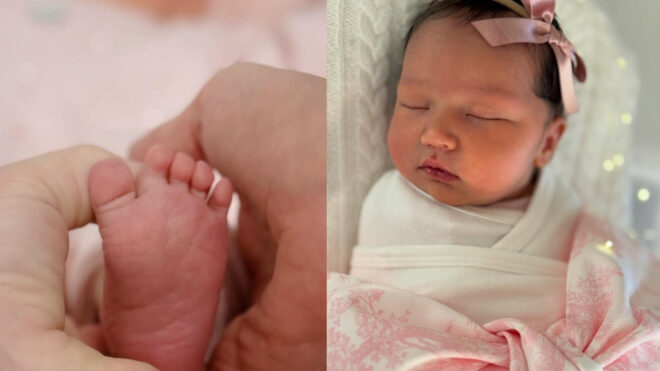I never in a million years thought I'd be struggling with breakouts during my late 20s. Sure, I had acne when I was a teenager, but that's normal. Why are these pesky pimples suddenly showing up on my face now? I can't deal! Apparently, I'm not the only woman out there that struggles with adult acne. It's actually a lot more common than you'd think. But there are ways you can treat it!
Read more ¿Qué más?: 6 Things every Latina should know about sunscreen
Unfortunately, wrinkles aren't the only thing us grown women have to worry about. Quite a few of us are struggling with zits and manchas too, which is why I decided to go to Dr. Maria Patricia Rivas, Hispanic board certified dermatologist for Lubriderm, for advice. The trick to treating breakouts is understanding what causes them. Here are 10 things we all need to know about adult acne!
1. It's normal: The first step to treating adult acne is knowing that it's not as rare as you many think. In fact, quite a few things can cause it. "Adult acne is very common and can occur at any time in your 30s, 40s, or 50s, even if you never had acne as a teenager," Dr. Rivas says. It is usually due to hormone level fluctuation, stress, hereditary predisposition, skin and hair products, or medications."
2. It's nothing like when you were younger: When you were a teen, you probably broke out all over your face, anywhere from your forehead to your cheeks. But Dr. Rivas claims that the usual distribution for adult acne is usually found in the lower parts of your face, like your chin or your mouth. This is most likely due to the hormonal fluctuations.
3. It could be your birth control: I've noticed that certain birth control pills I've taken haven't just made me put on weight but also caused me to seriously break out. Weird, right? "Most birth control pills help to clear acne; however, depending on which hormones your birth control pill has, it can worsen your acne, Dr. Rivas says. "In such cases, you should discuss with your gynecologist about switching your birth control."
4. It might not be your diet: Eat a lot of sugary and salty foods? While that may have caused you to breakout during your teens, Dr. Rivas claims that diet doesn't always play such a strong role when it comes to adult acne. It always depends on the person. "Studies regarding diet induced acne have been contradictory. Therefore, there's not a specific diet given to treat acne," she says. "Recommendations are made to each patient in an individual manner depending on their history." So if you doctor tells you to lay off on the dairy or chocolate, that doesn't mean that every woman that breaks out has to cut out those foods.
5. It could be your makeup: A lot of us don't realize it, but our makeup could very likely be the reason behind our zits. Dr. Rivas recommends looking for products that are labeled as "non-comedogenic." I like to stick with lightweight, oil-free foundations, like Laura Mercier Oil Free Tinted Moisturizer Broad Spectrum SPF 20 ($43), facial creams and serums. Also, make sure you're washing your makeup brushes as often as possible.
6. It could be your skincare routine: If you have acne-prone skin you might want to switch out your heavy facial cream, for lighter products that are still going to moisturize without making you breakout. "Products containing retinoids are good anti-aging agents that can also help with your acne," Dr. Rivas says. Try Neutrogena Rapid Wrinkle Repair Moisturizer Broad Spectrum SPF 30 ($20).
7. You might need to see your derm: Tried a ton of products and nothing worked? It might be time to see an expert. "You should see a dermatologist for treatment of your acne," says Dr. Rivas. "There are multiple treatment options and which one to use will depend on the type of lesions and skin each particular patient has."
8. You can banish blemishes: Dr. Rivas claims that you can find acne medications that treat both your breakouts and your dark spots. I'm obsessed with SkinCeuticals Blemish + Age Defense ($86). It might seem pricey but it's so worth every penny. It fights acne, fades manchas, evens your complexion and smooths fine lines and wrinkles.
9. You can avoid manchas____: "We Latinas have extra pigment in our skin and this makes it easier for us to get dark spots after any injury to our skin," Dr. Rivas says. "In addition, exposure to sun triggers more production of pigment with subsequent hyperpigmentation. Always use sunscreen to avoid manchas and see a dermatologist to start acne treatment in order to avoid scars." I use Neutrogena Oil-Free Moisture SPF 35 ($10) religiously.
10. You can get a facial: To help lighten up my dark spots, I booked a professional facial at Bliss World called "The bright stuff." My complexion looked AMAZING! Peels and microdermabrasion work wonders on acne scars and help give you a much more even skin tone. Talk to your derm first to find out the best treatment for your skin.
Image via Thinkstock




